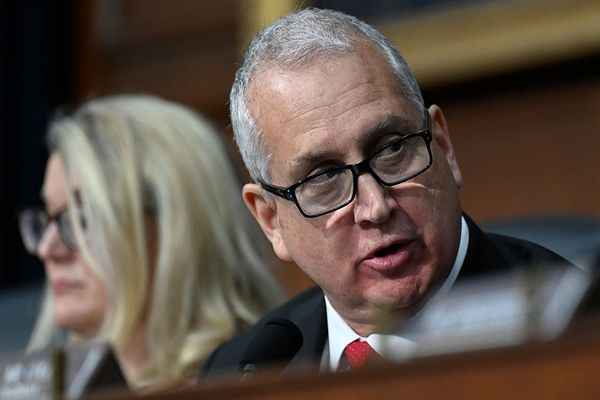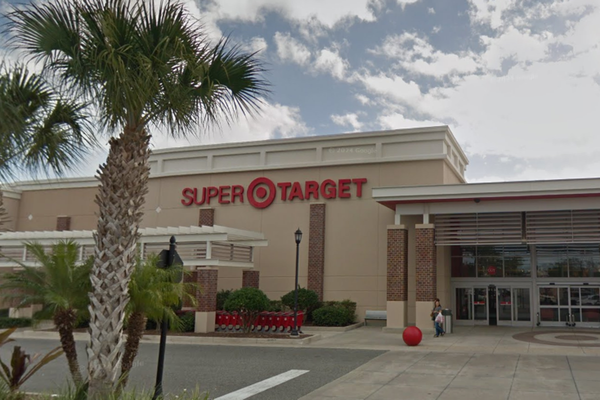Value investing is more than just buying stocks that are statistically cheap. Why bother owning the clunkers? This top mutual fund has its reasons.
Loading up on marked-down shares of good companies going through a rough patch can pay off if they fix things and regain their winning form.
That's the winning investment formula of David Samra, portfolio manager of top-performing Artisan International Value (ARTKX). Samra, who's been managing money for three decades and has piloted the fund since its 2002 inception, and his investment team have a time-tested stock-buying blueprint that's proved profitable.
The total return of the $35.3 billion fund, an IBD 2024 Best Mutual Funds Awards winner, topped 97% of funds in its peer group in the past three-, five- and 10-year periods, according to fund tracker Morningstar. In 2024, Artisan International Value posted a total return of 6.4%, ranking in the top quartile of similar funds.
Top Mutual Fund Scours For Winners
Samra and comanager Ian McGonigle and associate manager Benjamin Herrick don't just look for stocks with bombed-out price-to-earnings ratios. They scour the globe for the rare companies with pedigree that for one reason or another are trading way below what the business is worth.
Most important, Samra only buys value stocks that possess four key qualities that boost the odds of the company posting strong price returns going forward.
A good value stock must trade well below its intrinsic value. It must also be a good business, have a strong balance sheet and a strong management team with a record of building shareholder value.
"If you have all four things," Samra said, you've got the makings of a winning stock. "It's (like finding) a needle in a haystack. You have to be patient. They don't come across your desk every day."
Taking A Unique Approach To Value Stocks
Samra is a self-described value investor. But he and the team put their own twist on things.
"What we do is a little bit different," said Samra. "We look for better businesses. When we do our jobs correctly, we not only get the growth in the underlying value of the business, but we also get a kicker when it revalues (to a higher P-E ratio)."
Artisan International Value is filled with stocks that trade at significant discounts to their intrinsic value, have strong competitive positions, strong free cash flow and improving returns on capital and financial strength.
Samra does some quick math to make clear how his approach to picking value stocks can add up to big gains.
Say you've got a business that makes $1 in earnings per year that's growing at 10% and trades at 15 times earnings. That's a $15 stock. A year later you make 10%, and the stock rises to $16.50 if the P-E holds. "But if you recognize that this business is way better and it's mispriced and it should trade at 20 times earnings, instead of a $16.50 stock you could get a $22 stock as the year goes by," Samra said. The takeaway: instead of a 10% gain, you could earn a 47% return if the stock rerates to the higher P-E multiple.
Another plus to Samra's approach is it can offer downside protection, or what he calls "a margin of safety." Say that same stock in the example above doesn't see its P-E rise to 20 but stays at 15 times earnings. "I avoid a permanent loss of capital" said Samra.
Top Mutual Fund Sticks To Value
When picking stocks, Samra says it's all about value. But it's also about having reasonable expectations of cash flow generation over the next few years. And the stock must have potential upside. "We don't try to allocate money based on country or investment themes or politics or anything like that," said Samra.
Samra abhors companies that present financial risk. "We don't love companies that carry higher degrees of debt," said Samra.
He prefers companies that are overcapitalized. The reason: they have more financial flexibility — and less chance of running into financial trouble.
"If there is a problem, and oftentimes when we get involved in a stock there is a problem, they're able to reinvest back into the business to fix it," said Samra. "When things get tough or opportunities become available, you can take advantage of them if you have a strong balance sheet."
What separates actively managed Artisan International Value from, say, an international value index fund is that its intense focus on research helps it avoid stocks that are cheap for a reason. "Index funds aren't taking out bad businesses," said Samra. "They're not taking out companies that are over-leveraged. They're not taking out companies with management teams that have mediocre behavior."
Staying Away From Value Traps
By doing the work and keeping track of companies that meet his four investment criteria, Samra can pounce when a good company runs into short-term trouble.
A good example, Samra says, is Ireland-based low-cost airline Ryanair. When the pandemic hit, the stock suffered a 50% haircut. But Samra, who had been following Ryanair for years, knew it was a good, well-run company. He knew CEO Michael O'Leary favors a conservative balance sheet. The fund pounced. The stock rebounded from a pandemic low of $19 in March 2020 to finish that year at $43.99, a double off the bottom.
"We know exactly where to go when the market blows up," said Samra.
The guiding force is the four stock traits the team steering Artisan International Value looks for – cheap stock, good business, strong balance sheet and solid management.
"Finding businesses like this is very labor intensive, it's like coal mining," said Samra, who started his career meeting with companies in search of hidden gems selling on the cheap. "You do a ton of work, you keep asking questions and valuing businesses, and you do it over and over and over again until that needle in a haystack shines. It's like a shiny pen."
Focusing On The Winners
Finding these rare stocks is hard. That's why Samra's Artisan International Value holds only around 50 stocks.
The latest shiny pen Samra is bullish on is China-based e-commerce giant Alibaba, often dubbed "The Amazon of China."
"Nobody's going to like it because it's Alibaba," said Samra. "People are frightened to death of investing in China." Samra admits the China narrative is negative. There's an economic downturn in China. People don't care for the communist government. And many people, he notes, fear the Chinese economy will be terrible for years. That's a complete 180 from a few years back when Alibaba was all the rage.
"Five years ago, podcasts were saying, 'Alibaba would grow to kingdom come. It has a big multiple, but it underestimates the power of the fantastic business,' " Samra recalled. "Back then it was trading at 30 times earnings. And now, if you deconstruct it, the core business is trading at about six times earnings. And that's super attractive."
Time is on his side, as investing in beaten-down companies is about patience, not making a quick buck, Samra says.
"We never think about investing in a one-year time frame," said Samra. "If you come across a business that is struggling, generally it takes awhile for it to repair itself."
Top Mutual Fund Is Patient
Samra is comfortable with longer time frames for a payoff. In fact, he bought the fund's top holding, Arch Capital Group, a Bermuda-based property and casualty insurer, in 2003.
"That was 20 years ago, and that company has been compounding for us at about 15% per year over that time," said Samra, adding that there have been ups and downs along the way.
Another stock that fits Samra's value criteria is Philips, a well-known Dutch company that's now a health-technology conglomerate. The company's history dates to the 1890s, when it profited from its affordable electric incandescent light bulbs. Philips is also known for innovations, such as electric razors in the 1930s, mass-market TVs in the 1940s, cassette players in the 1960s, VCRs in the 1970s and CDs in the 1980s. Philips transitioned into a leading health-tech company in the 2010s.
Switch To Health Devices Paying Off
Today, they sell a wide assortment of medical equipment, such as MRI machines and imaging devices used by hospitals, CPAP machines used to treat sleep apnea, as well as consumer products such as Norelco shavers and Sonicare toothbrushes.
Philips caught Samra's eye in mid-2021 when its shares tumbled sharply after it recalled millions of Respironics CPAP machines and faced lawsuits due to claims the machines' insulating foam was causing health problems. The stock fell from more than $56 per share in April 2021 to less than $11 a share by November 2022. Philips stock has been moving higher since a $1.1 billion settlement in April 2024 that was far less costly than feared. The stock now trades above $25, albeit off its recovery high. The company, which posts sales of around $20 billion per year, has a market cap of $23.5 billion.
"So, call it one times revenue," said Samra. "It's a very cheap stock. They're in fundamentally good businesses. The balance sheet is OK, and it's OK only because they have to make these litigation payments. But the company is generating cash, and the balance sheet should get better."
Top Mutual Fund Has A Favorite Type of Stock
Samra says Philips is a poster child for the kind of value stock his team invests in.
"It's had problems," said Samra. "The problems destroyed the valuation. The valuation is still cheap. There's repair going on. It has the people (Roy Jakobs took over as CEO in October 2022) and the balance sheet and the market position to be able to repair itself. And once it's repaired, people will recognize it and should revalue it (higher)."
It's not lost on Samra that picking stocks and investing outside the U.S. is challenging. Unlike the capitalist U.S., which benefits from wealth, a single language, rule of law, and an innovative economy that generates peppier growth and higher returns, most foreign countries lack the scale and dynamism of the U.S.
Asked if international stocks will start to outperform U.S. stocks anytime soon, Samra said: "We can't bank on it," citing reasons noted above.
But since there are fewer money managers doing what he does, international markets make for "a really good hunting ground," Samra said. "It's more complicated than investing in the U.S. Fewer people do it. So, I have less competition. Foreign stocks are mispriced because people aren't paying attention in the right way."







